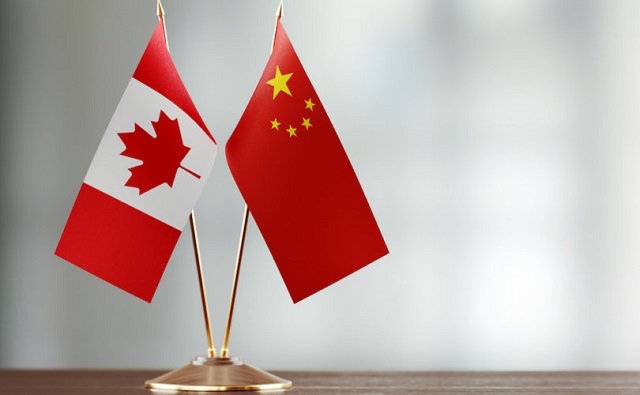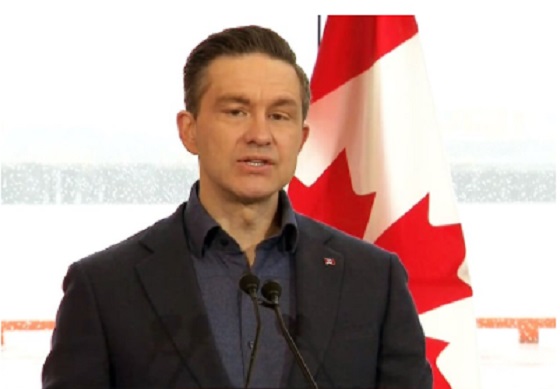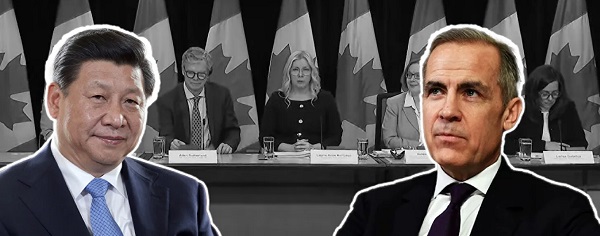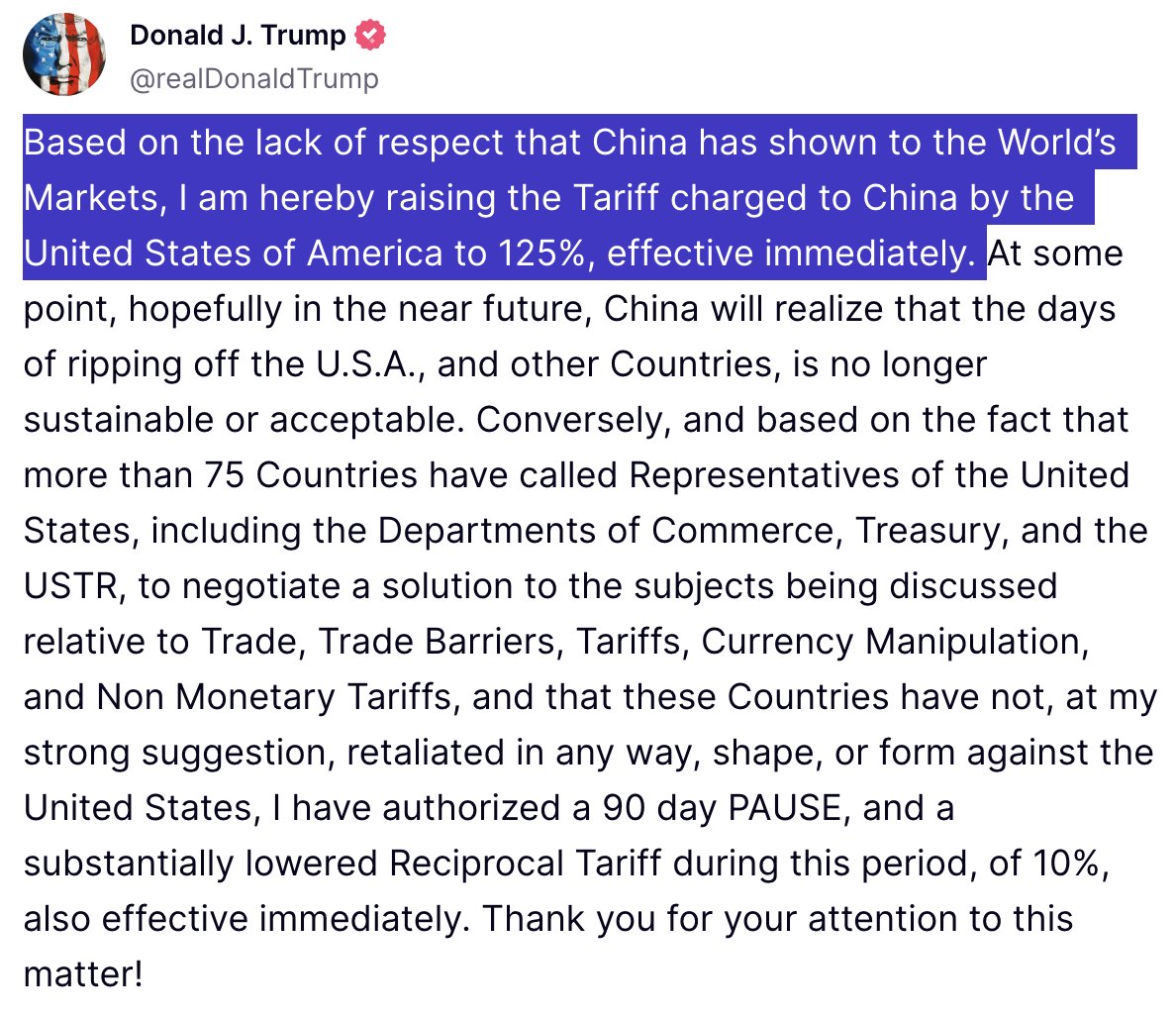Business
Australian senator compares Trudeau’s treatment of Freedom Convoy protesters to Communist China

From LifeSiteNews
‘This push towards a digital ID future is another step toward a Chinese Communist Party-style social credit system, which will force you to support the current thing at the risk of total cancellation,’ Senator Alex Antic said
An Australian senator compared Prime Minister Justin Trudeau’s handling of the Freedom Convoy with Communist China.
During a November 13 meeting in the Australian Senate, Senator Alex Antic used the freezing of Canadians’ bank accounts during the 2022 Freedom Convoy as an example of the dangers of digital currency, comparing Trudeau’s actions with China’s social credit system.
“I’ve been warning about digital ID for some time, and it wasn’t so long ago that, like many of these issues which turn out to be correct, it was considered to be nothing but a conspiracy theory,” he said.
“We saw how that worked a couple of years ago with the financial cancellation of the Canadian truckers when they were protesting COVID lockdowns and restrictions,” Antic appealed. “The advancement of technology is inevitable, but this push towards a digital ID future is another step towards a Chinese Communist Party-style social credit system, which will force you to support the current thing at the risk of total cancellation.”
The Trudeau government’s similarities to China’s Communist government have become increasingly evident to both Canadians and other countries. Indeed, Trudeau himself admitted that he has a “level of admiration” for China’s “basic dictatorship.”
His imitation of China’s credit score system was revealed during the 2022 Freedom Convoy protest in Ottawa with thousands of Canadians calling for an end to COVID mandates by camping outside Parliament.
In response, Trudeau’s government enacted the EA on February 14, 2022, to shut down the popular movement. Trudeau revoked the EA on February 23 after the protesters had been cleared out. At the time, seven of Canada’s 10 provinces opposed the use of the EA by Trudeau.
Under the EA, Deputy Prime Minister Chrystia Freeland froze the bank accounts of Canadians who donated to the 2022 Freedom Convoy, which protested vaccine mandates and COVID regulations.
As articulated by LifeSiteNews correspondent David James, this type of financial crackdown is precisely why many fear the move toward an entirely digital, cashless society.
“What Freeland has outlined is an unprecedented incursion into financial activity that is designed to lock the people whom the government deems to be undesirable out of the system entirely,” James wrote in an op-ed.
“It confirms what many have been warning about for some time: that one of the core elements of the so-called Great Reset is to enslave populations by surveilling and controlling their transactions,” he continued. “China has already implemented its version of digital tyranny with its Social Credit System, which it will combine with its Central Bank Digital Currency [CBDC]. Now Trudeau and Freeland have drawn back the curtain in Canada to reveal their version of digital despotism.”
Antic’s use of Canada as an example comes as governments around the world are pushing digital currency despite warnings that it will lead to a social credit system.
“Last week, the European Parliament and the Council of the European Union reached a final agreement on a law to create the European Digital Identity, or eID, the EU’s first fully digital identification system,” Antic announced.
“This law will provide Europeans with a digital wallet containing digital versions of their ID cards — their drivers licences, their academic certificates, their medical records, their bank account information and so on,” he explained. “The next major step in the EU will be to create a digital euro and a central bank digital currency, which is currently being developed by the European Central Bank.”
“I’ve been warning about digital ID for some time, and it wasn’t so long ago that, like many of these issues which turn out to be correct, it was considered to be nothing but a conspiracy theory,” he added.
Currently, Australia is moving toward introducing digital currency with consultation on the bill having recently closed.
“You can see how it’s going to happen: We’ll get a digital currency and, once those steps are in place, a digital snare trap will have been created,” Antic warned. “We must reject a digital ID future, and time is running out for people in this place to understand that they are playing with fire.”
Business
Trump raises China tariffs to 125%, announces 90-day pause for countries who’ve reached out to negotiate

 MxM News
MxM News
Quick Hit:
On Wednesday, President Donald Trump announced an immediate increase in tariffs on China to 125%, citing “a lack of respect” toward global markets. At the same time, he approved a 90-day pause and tariff reduction for over 75 countries that have engaged with the U.S. on trade reforms.
Key Details:
-
Trump said the dramatic tariff hike on China is meant to send a clear message: “the days of ripping off the U.S.A., and other Countries, is no longer sustainable or acceptable.”
-
The president added that over 75 countries have reached out to the U.S. Departments of Commerce, Treasury, and the U.S. Trade Representative (USTR) to negotiate on issues including trade barriers, tariffs, and currency manipulation.
-
As a goodwill measure, Trump authorized “a 90 day PAUSE, and a substantially lowered Reciprocal Tariff during this period, of 10%, also effective immediately,” noting that these countries had not retaliated against the U.S. despite strong prior warnings.
Diving Deeper:
President Donald Trump on Wednesday took a major step in reshaping the global trade landscape, announcing via Truth Social that he is raising tariffs on China to 125% effective immediately. Trump attributed the decision to “the lack of respect that China has shown to the World’s Markets,” and said it is time for Beijing to face consequences for its trade practices.
“At some point, hopefully in the near future, China will realize that the days of ripping off the U.S.A., and other Countries, is no longer sustainable or acceptable,” Trump stated.
The president emphasized that this was not a blanket policy toward all trading partners. In contrast to China, Trump said more than 75 countries have reached out to American trade officials to address ongoing issues related to tariffs and trade barriers.
“More than 75 Countries have called Representatives of the United States, including the Departments of Commerce, Treasury, and the USTR, to negotiate a solution to the subjects being discussed relative to Trade, Trade Barriers, Tariffs, Currency Manipulation, and Non Monetary Tariffs,” he wrote.
Citing those discussions and the absence of retaliation against the U.S., Trump approved a temporary reduction in reciprocal tariffs for those countries. “I have authorized a 90 day PAUSE, and a substantially lowered Reciprocal Tariff during this period, of 10%, also effective immediately.”
The move reflects a two-pronged strategy—punishing China for what Trump sees as longstanding economic abuses while rewarding countries that have shown a willingness to work with the U.S. to level the playing field.
The 125% tariff marks one of the most aggressive steps in Trump’s America First trade doctrine, likely signaling to both allies and adversaries that a second Trump administration would continue its hardline economic policies.
Alberta
Alberta takes big step towards shorter wait times and higher quality health care

From the Fraser Institute
On Monday, the Smith government announced that beginning next year it will change the way it funds surgeries in Alberta. This is a big step towards unlocking the ability of Alberta’s health-care system to provide more, better and faster services for the same or possibly fewer dollars.
To understand the significance of this change, you must understand the consequences of the current (and outdated) approach.
Currently, the Alberta government pays a lump sum of money to hospitals each year. Consequently, hospitals perceive patients as a drain on their budgets. From the hospital’s perspective, there’s little financial incentive to serve more patients, operate more efficiently and provide superior quality services.
Consider what would happen if your local grocery store received a giant bag of money each year to feed people. The number of items would quickly decline to whatever was most convenient for the store to provide. (Have a favourite cereal? Too bad.) Store hours would become less convenient for customers, alongside a general decline in overall service. This type of grocery store, like an Alberta hospital, is actually financially better off (that is, it saves money) if you go elsewhere.
The Smith government plans to flip this entire system on its head, to the benefit of patients and taxpayers. Instead of handing out bags of money each year to providers, the new system—known as “activity-based funding”—will pay health-care providers for each patient they treat, based on the patient’s particular condition and important factors that may add complexity or cost to their care.
This turns patients from a drain on budgets into a source of additional revenue. The result, as has been demonstrated in other universal health-care systems worldwide, is more services delivered using existing health-care infrastructure, lower wait times, improved quality of care, improved access to medical technologies, and less waste.
In other words, Albertans will receive far better value from their health-care system, which is currently among the most expensive in the world. And relief can’t come soon enough—for example, last year in Alberta the median wait time for orthopedic surgeries including hip and knee replacements was 66.8 weeks.
The naysayers argue this approach will undermine the province’s universal system and hurt patients. But by allowing a spectrum of providers to compete for the delivery of quality care, Alberta will follow the lead of other more successful universal health-care systems in countries such as Australia, Germany, the Netherlands and Switzerland and create greater accountability for hospitals and other health-care providers. Taxpayers will get a much better picture of what they’re paying for and how much they pay.
Again, Alberta is not exploring an untested policy. Almost every other developed country with universal health care uses some form of “activity-based funding” for hospital and surgical care. And remember, we already spend more on health care than our counterparts in nearly all of these countries yet endure longer wait times and poorer access to services generally, in part because of how we pay for surgical care.
While the devil is always in the details, and while it’s still possible for the Alberta government to get this wrong, Monday’s announcement is a big step in the right direction. A funding model that puts patients first will get Albertans more of the high-quality health care they already pay for in a timelier fashion. And provide to other provinces an example of bold health-care reform.
-

 Bruce Dowbiggin2 days ago
Bruce Dowbiggin2 days agoBettman Gives Rogers Keys To The Empire. Nothing Will Change
-

 2025 Federal Election2 days ago
2025 Federal Election2 days agoPoilievre Will Bring in ‘One and Done’ Resource Approvals, and Ten Specific Projects Including LNG Canada Phase II
-

 2025 Federal Election2 days ago
2025 Federal Election2 days agoElection Security Briefing Confirms CCP-Linked Operation Boosted Carney
-

 conflict2 days ago
conflict2 days agoZelensky Alleges Chinese Nationals Fighting for Russia, Calls for Global Response
-

 2025 Federal Election1 day ago
2025 Federal Election1 day agoHarper Endorses Poilievre at Historic Edmonton Rally: “This Crisis Was Made in Canada”
-

 John Stossel21 hours ago
John Stossel21 hours agoGovernment Gambling Hypocrisy: Bad Odds and No Competition
-

 2025 Federal Election13 hours ago
2025 Federal Election13 hours agoCommunist China helped boost Mark Carney’s image on social media, election watchdog reports
-

 2025 Federal Election1 day ago
2025 Federal Election1 day agoMark Carney’s radical left-wing, globalist record proves he is Justin Trudeau 2.0











